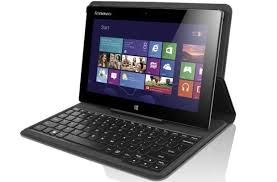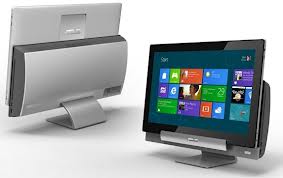Last week Lenovo released Miix, its hybrid 10-inch tablet that can also serve as a laptop while Vizio has started shipping its 11.8-inch tablet that it first showed at the beginning of the year at the CES show in Las Vegas.
It seemed just a year ago that tablet releases were something that could be planned easily on a calendar, one company would announce a product release date and one of the few other major players would then announce products the day before.
The Lenovo Miix features a 10.1-inch display that has 1366 x 768 resolution, runs Microsoft Windows 8 operating system and is powered by a dual core Intel Atom processor. It will feature 64GB of storage on board with an additional expansion capability of 32GB via a microSD card.
The key feature for the device is what the company calls a “quick-flip” detachable folio case with an integrated AccuType keyboard that enables users to switch between PC mode and tablet mode as their needs require.
It also includes integrated Bluetooth 4.0, Wi-Fi and/or optional3G-GPS connectivity and up to 10 hours of battery life. The tablet is expected to ship later this summer and will have an estimated entry price of $550.
The Vizio 11.6” Windows 8 Tablet PC has an 11.6-inch 1080p display, runs Windows 8 and is powered by an Advanced Micro Device Z-60 processor with 2GB of RAM. It also features 64GB of storage, a five hour battery life and has a price tag of $600.
Now tablets are announced at major shows such as World Mobile Congress, CES and E3 as well as just when they are ready to ship, a sign that the market is maturing, and that is good news for users and future buyers.
As an increasing number of tablets are released, and all across the pricing spectrum, it seems pretty obvious that not only will they become ubiquitous in peoples’ lives, but that many users will have multiple devices.
This represents a huge opportunity for developers as apps that are focused specifically for tablets will become increasingly important. I can foresee when I have a tablet dedicated for work and one by the television that I use for sports and other purposes that are more entertainment based.










